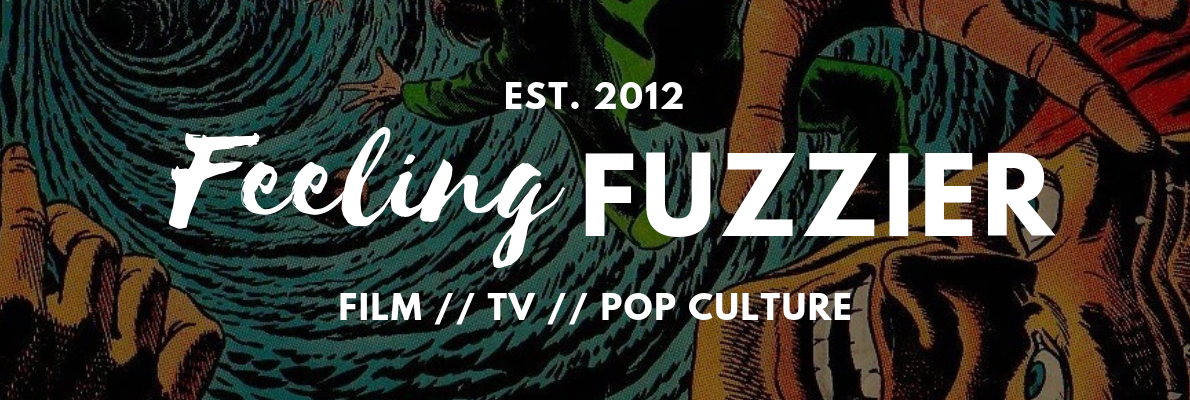Winner of the Grand Prix at Cannes, Spike Lee's Blackkklansman uses some crazy 'fo real shit as the basis for one of the best films of the year.
Spike Lee is not a man to mince his words, but his latest film Blackkklansman is an especially incendiary effort for the veteran filmmaker. It's a film that wants to rile people up, hit them where in hurts and make a powerful statement.
It achieves all this by merely holding up a mirror and forcing us to look back at ourselves. Though it may be a period piece, Blackkklansman is making the most pertinent and poignant political statement of 2018 – and it's one of the best films of the year as a result.
Blackkklansman is based on the incredible true story of Ron Stallworth, the first African-American man to join the Klu Klux Klan. Well, sort of. You see Stallworth, here played by John David Washington, was in fact an undercover police officer. Stallworth and his Jewish partner Flip Zimmerman (Adam Driver) shared their racist, white America-loving persona by playing two sides of the coin – Stallworth via the phone and Zimmerman in person. Together the pair were able to infiltrate the upper echelon's of Colorado's resident Klansmen, preventing racially-targeted crimes and exposing the hatred that ran deep in America through the 20th century – and Lee, bookending the film with two contrasting yet complementary footage, illustrating how said hatred continues to pervade to this day.
At first glance, Blackkklansman dresses itself up as a satirical buddy cop comedy crossed with a coming-of-age romance. In addition to Ron and Flip's investigation, the former finds himself falling for Patrice (Laura Harrier), a vocal college student campaigning for "all power to all the people". Washington and Harrier's characters share an intriguing dynamic; coming at their shared interest in social justice from different places, their romance finds itself interrupted by conflicting methodolgoies. Patrice is all for upending the table and dismantling inherently racist power structures; the more idealistic Ron feels meaningful change can come from inside said structures. This push/pull dynamic adds depth to the film, as does Driver's character, Flip.
At first Flip's relationship with Ron is strictly professional; but as their investigation exposes the ugliness of the Klan, you can see this inner conflict in Flip – a Jew – bubbling to the surface. Driver excels at this unspoken struggle, growing in confidence and anger as the film progresses. Also a standout is Topher Grace as David Duke. Grace's performance mixes sweet with psychotic – a scary combination that highlights how America's racist tendencies tend to hide in plain sight.
The comedy doesn't detract from the message one iota; if anything, it helps lighten what would otherwise be a suffocating affair. The tone might rip the audience from one end of the spectrum to the next with frightening speed and regularity, but Lee's film needs that contrast to underline its point. As an audience, you are invited to feel unnerved, tickled and incensed in the same scene, such as one sequence where Flip is attending a Klan meeting while Ron listens via a wire.
The former is being grilled by one of the most zealous members of the group, hooked up to a lie detector in a basement draped in full-blown Confederate regalia. The two get into a heated discussion about judaism and the Holocaust, with Flip pouring water on his interrogator's denier mentality. It's ludicrous, tense and maddening – it makes you want to reach into the screen and throttle the antagonist. It makes you want to laugh and shake your head in dismay. It makes you want to bite your nails to the bone.
 That's Blackkklansman in a nutshell; an otherwise straightforward buddy cop comedy that makes you feel a thousand feelings a minute. The writing, which really plays with the 'stranger than fiction' peculiarities, is great. Although a little overlong and manufactured (possibly the only compliant), the third act does tie everything together with a tense ticking clock.
That's Blackkklansman in a nutshell; an otherwise straightforward buddy cop comedy that makes you feel a thousand feelings a minute. The writing, which really plays with the 'stranger than fiction' peculiarities, is great. Although a little overlong and manufactured (possibly the only compliant), the third act does tie everything together with a tense ticking clock.The last 10 minutes arrive like a sledgehammer to the shin, leaving the audience shattered. Lee's epilogue, which employs newsreel footage of 2017's Charlottesville protest, isn't subtle in the slightest – but it makes its point, clear as day. When the credits started to roll, you could hear a pin drop.
The Verdict: 10/10
The more things change, the more they stay the same. Blackkklansman is both unapologetically inflammatory in its appraisal of race relations in contemporary America and also incredibly accessible for audiences looking for something funny, thrilling and satirical all at the same time.
Blackkklansman is in cinemas across Australia from Thursday August 16.
Images courtesy of Universal Pictures Australia.



No comments:
Post a Comment